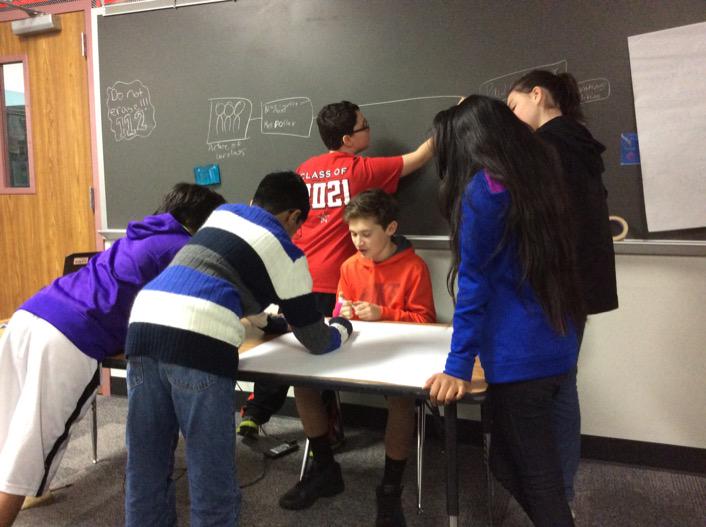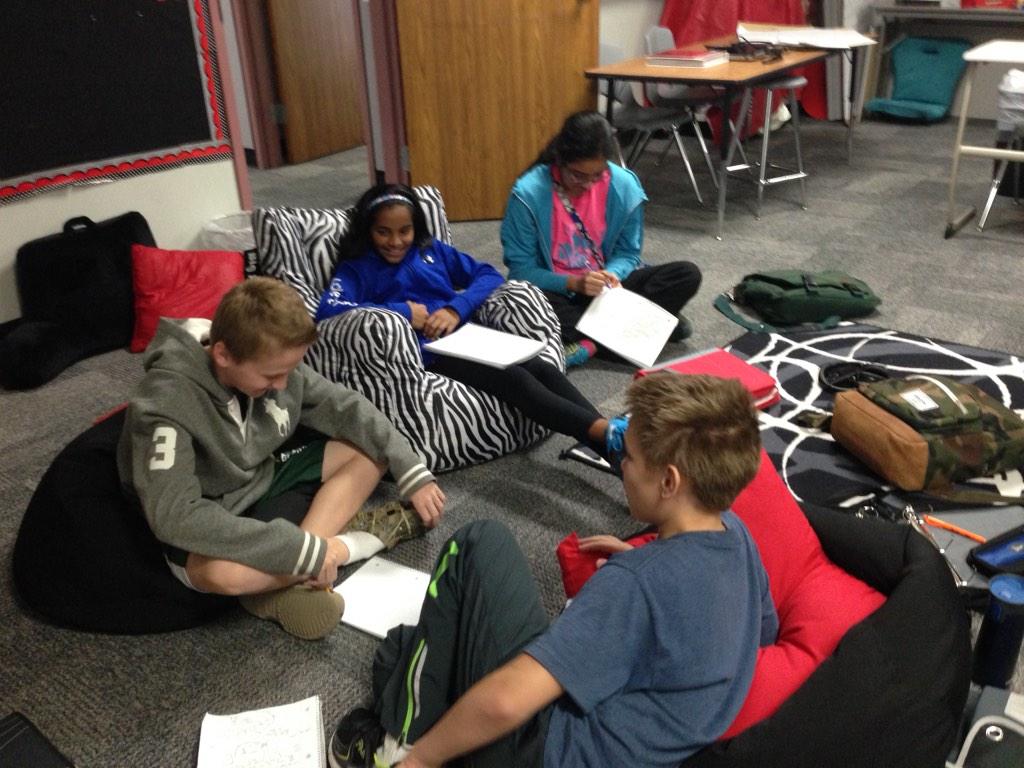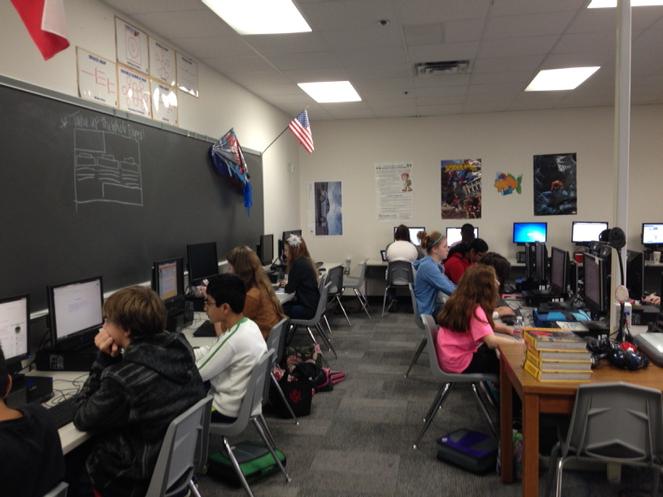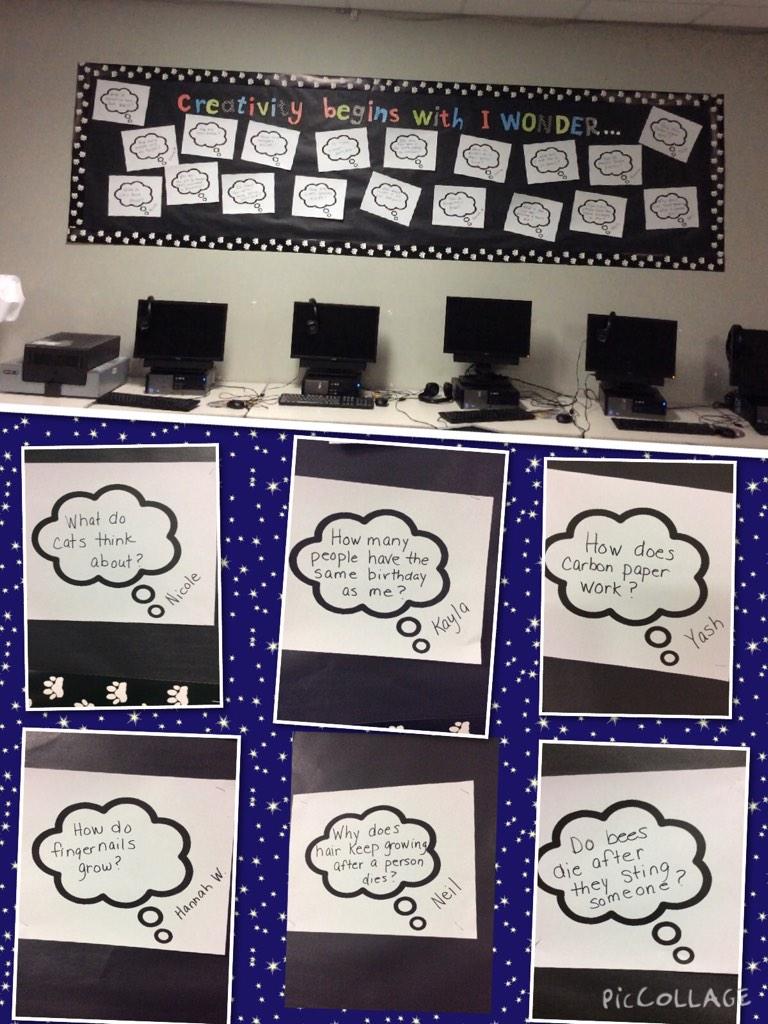 |
I have yet to see a face that is fearless and excited about writing. Why is this? I've pondered this question longer than I probably should have, but I think I've put my foot on at least part of the solution.
This is what I pledge to do in 2015:
1. Create a safe environment that embraces mistakes as part of the learning process.
I believe that confident writers are fearless. They know mistakes will happen but they are willing to jump anyway. They know that their attempts will be affirmed and not condoned.
In order for this to happen, the learning environment is set up in such a way to celebrate risk taking.
 |
| creative writers collaborating on a class newsletter |
I can already hear the voice of naysayers. "How will young and inexperienced writers learn if we don't show them?" True. But we also need to step back and let young writers fall into their own style and find their voice.
The last thing we need are more cookie cutter writing samples. My goodness! We need to create writers who will stand out from the crowd!
Easier said than done, right? Shifting from a fixed mindset to a growth mindset is imperative in order to accept imperfection and embrace the writing process. Freeing writers from fear based writing begins with an environment that celebrates taking risks!
2. Create a learning environment that focuses on growth not the grade.
I've come up with a name for an excessive focus on grading. I call it "gradidous". It seems to start in 6th grade and reaches near epidemic proportions by 8th grade.
 |
| creative writers give and get feedback from peers |
I learned this lesson from Samantha (not her real name). Samantha was the archetype perfectionist writer who relied heavily on parent coaching. I finally required journals to be left in the classroom. Samantha one upped me and asked to use technology to write. Of course! Isn't part of learning about giving voice and choice?
 |
| creative writers have voice and choice |
Samantha was literally having another person write for her using google docs! When Samantha discovered what she was able to do on her own, learning could take place. Furthermore, removing the "A" or "100" ball-and-chain allowed her to de-stress and find her own voice.
What does a grade say anyway? It is far more valuable to sit down with a learner and talk thru their writing, or better yet, have writing communities for learners to support one another. Even the best of compliments are nothing but hot air without meaningful feedback that encourages and coaches on ways to polish their writing. Some of our learners may write like scribblers. Everyone is on a different stage and page in the writing process and they need to be treated as such.
Digital portfolios, writer's notebooks, reflection journals allow learners to show growth throughout the year. Keep the focus on growth!
3. Create an environment that extends beyond the classroom.
By middle school it isn't enough to have a their papers taped to grandma's refrigerator door. LearnersWhat does my writing matter? Why am I doing this? Kids need to know the expectations and purpose for the assignment.
 |
| creative writers composing interest-driven stories |
Marcus (not his real name) refused to write. Not only did he refuse to write, he was an in-your-face kid would wasn't afraid to show his contempt for writing. However, he did like to draw
.
 |
| our class "wonder wall" |
Marcus needed purpose beyond the four walls of our classroom. He needed to know that his writing mattered. Yes, there were teachers who shun this method, but when a learner is failing and emotionally heading down a destructive path...you do what's best for that child.
As the new year begins, I pledge to give learners more opportunities during the school day to blog, journal, free write, and even text. Now that I think about it, isn't writing about communication? There is an ebb and flow to every writer as they step into their own style. Fearless writing begins in the safety of a classroom where risks can be taken, growth is celebrated, and purpose goes beyond the walls of a school.
Confession Reflection:
1. Why is it important to individualize writing instruction?
2. What are some other ways writing can be measured other than grades?
3. How can writing instruction be designed to teach structure but also spark creativity?
No comments:
Post a Comment